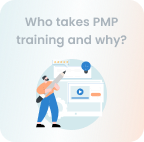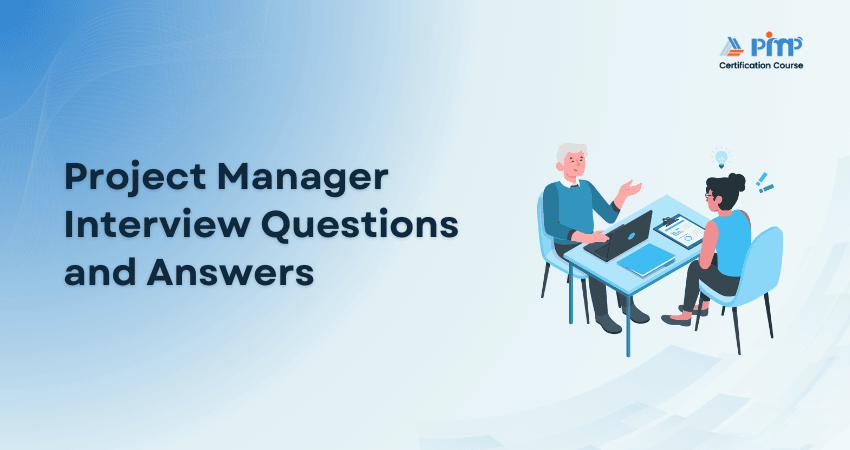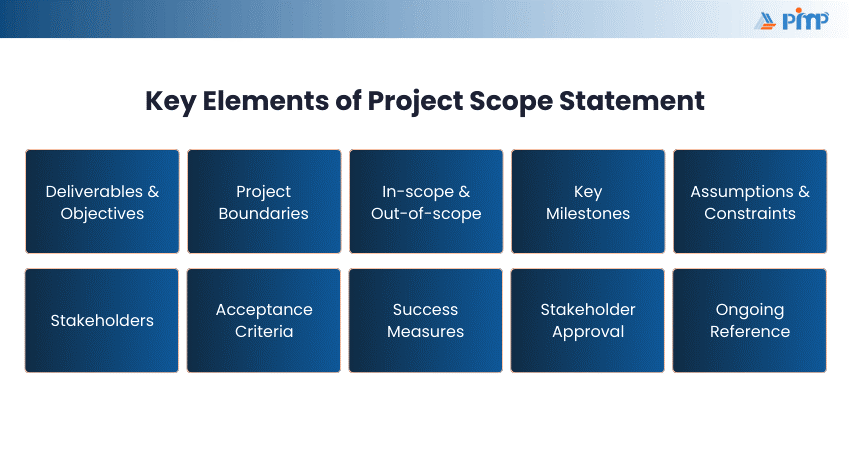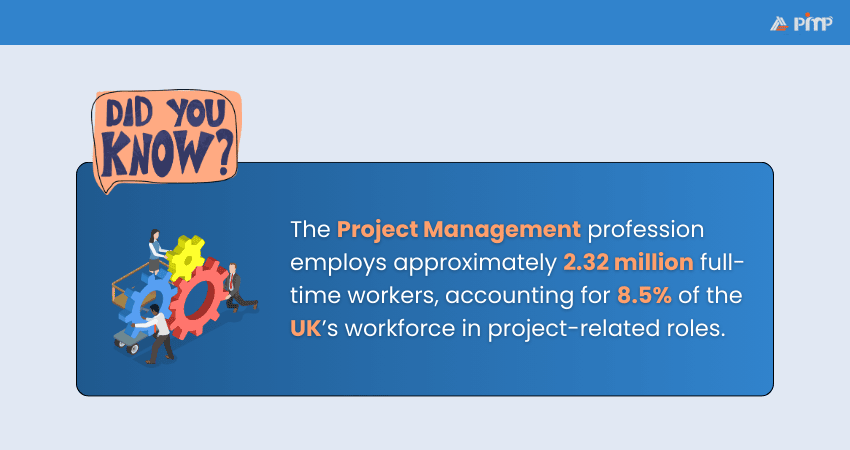









What sets a great Project Manager apart in today’s competitive landscape? It’s not just technical expertise, but the ability to lead teams, manage risks, and deliver results under pressure. This blog features 25+ of the most relevant Project Manager Interview Questions, along with sample answers to help you stand out as a potential candidate. So read on and use them to showcase your leadership, adaptability and problem-solving skills with renewed confidence. Let's get started!
A Project Manager plans, organizes and oversees projects from start to finish. They coordinate teams, manage resources and risks and resolve issues to make sure they are delivered on time, within budget and to agreed standards. Modern Project Management Software has broadened access to the role. As a result, Project Managers now focus less on technical execution and more on aligning stakeholders and ensuring clarity until objectives are achieved.
Preparing for a Project Manager interview means going beyond technical know-how. Employers want to see how you lead teams, manage risks, resolve conflicts, and deliver successful outcomes. Your responses should reflect your experience and alignment with the organization's goals.
This section covers 25 of the most frequently asked Project Manager Interview Questions and answers. Practicing these responses can help you stay focused under pressure and leave a lasting impression.
“I have over seven years of experience managing projects in IT, software and operational change. I’m skilled in Agile and hybrid delivery, with strengths in stakeholder communication, Risk Management and leading cross-functional teams. I’m passionate about aligning business goals with technical solutions that deliver real value, while also mentoring aspiring Project Managers. I’m open to embracing new tools to improve collaboration, efficiency and overall project success.”

“This role aligns perfectly with my skills and long-term goals. I’m inspired by the organization's focus on innovation, collaboration and impactful projects. The chance to lead cross-functional teams, drive continuous improvement and deliver Agile solutions excites me, offering both professional growth and meaningful business outcomes.”
“I have experience with Microsoft Project, Jira, Trello, Asana, Smartsheet, and Monday.com for scheduling, tracking, and reporting. For collaboration and documentation, I use Confluence, Microsoft Teams and Slack. I adapt tool choice to project needs, ensuring communication, transparency and productivity while keeping teams aligned and focused on successful delivery across different frameworks.”
“If I have the capability, expertise and time to resolve an issue with my immediate team, I always take that approach first. When a situation is sensitive, needs senior approval or would benefit from additional perspective, I involve my sponsor. I believe in progressing as far as possible independently, using available resources, before escalating. This supports both team effectiveness and my professional growth.”
An ideal project meets objectives within timeline, budget and scope while delivering real stakeholder value. It fosters engagement, open communication, collaboration, and accountability. Risks are managed, issues resolved swiftly, stakeholders kept informed and success measured by both completion and lasting impact of the solution.
“My approach is goal-oriented, collaborative, and adaptable. I set clear objectives, timelines, and expectations, with structured plans, milestones, and risk assessments. I apply Agile, Waterfall, or hybrid models as needed, ensuring regular updates, transparent reporting, stakeholder engagement, and proactive problem-solving to balance structure with flexibility and deliver value at every phase.”
“One of the biggest mistakes I made was underestimating the impact of stakeholder communication early on in a project. I focused so much on delivery and timelines, assuming that the requirements were fully aligned, which led to late-stage changes. Since then, I prioritize early engagement, clear expectation setting and regular check-ins to prevent misalignment and reduce rework.”
“I use a combination of tools and techniques for effective scheduling and tracking. For scheduling, I rely on Microsoft Project and Gantt charts to visualize timelines and dependencies. In Agile environments, I use Jira for sprint planning and Backlog Management. I also utilize Critical Path Analysis to identify time-sensitive activities. For tracking, I use dashboards in tools like Asana or Monday.com, along with regular status meetings and milestone reviews. ”
Advance your professional Project Management journey with our Certified Associate in Project Management (CAPM) ® Training – Join Now!
“A strong project scope statement includes a clear description of deliverables, objectives, and boundaries. It outlines in-scope and out-of-scope items, key milestones, assumptions, and constraints. It should also identify key stakeholders, acceptance criteria and success measures. This clarity helps align expectations, guide planning, and control changes. I ensure the scope statement is approved by stakeholders early and refer back to it throughout the project to stay on track.”

“A clear scope defines boundaries, controls time, cost, and resources, and prevents scope creep. It aligns work with stakeholder expectations, gives teams focus, reduces ambiguity and boosts morale. It also simplifies decision-making by providing a shared reference for changes and priorities. Ultimately, it builds trust by ensuring deliverables match agreed objectives.”
“I know a project is off track when the key indicators start to deviate from the plan. This includes missed milestones, repeated scope changes, budget variance, declining team morale or increased risks and issues. I also watch stakeholder feedback closely, because misalignment or concern often signals deeper delivery problems.”
“I address this by renegotiating vendor contracts with phased payments tied to deliverables, reallocating internal resources to minimize external costs and introducing stricter financial tracking. It’s important to hold regular budget reviews with stakeholders for transparency. These steps help control spending, and ensure the project is closed within the planned budget while meeting quality standards.”
“As a Project Manager, I build strong customer relationships through transparent communication, ensuring regular updates and open feedback. I focus on understanding customer needs and aligning deliverables with their goals. I also practice proactive problem-solving, addressing issues as quickly as possible. These tactics foster long-term collaboration, helping projects succeed while maintaining positive and productive client partnerships.”
Elevate your program leadership skills with our Program Management Professional (PgMP)® Certification Training – Learn More!
“I assess each request’s urgency and impact, then clarify the expectations with stakeholders. In a previous project, one stakeholder requested a client demo, and another requested an internal compliance review. I assessed both tasks and found the client demo had a greater business impact. I spoke with the compliance team, explained the situation, and proposed delivering critical compliance documents in phases. By agreeing on a revised timeline and keeping everyone updated, both needs were met without compromising on quality.”
“Once, a key vendor pulled out midway due to financial issues which put our delivery timeline at serious risk. I managed this by reassessing the impact, escalating the issue and securing a new vendor through accelerated procurement. I restructured the project timeline with compressed tasks and maintained constant stakeholder communication. Despite the setback, we delivered with only a two-week delay, proving the value of contingency planning.”
“I’ve led Agile projects in Scrum and Kanban, mainly in IT and Software Development. While working closely with Scrum Masters, I facilitated sprint planning, retrospectives, and daily stand-ups, and collaborated with Product Owners to prioritize backlogs. Using Jira and Confluence, I ensured flexibility, visibility and incremental value delivery throughout the lifecycle.”
“Of course. In my most recent project, I rolled out a Cloud-based HR system for a mid-sized financial firm. I led 12 team members, managing a £500K budget. I led the project using a hybrid Agile-Waterfall approach to meet fixed compliance timelines. I coordinated stakeholder inputs, ran weekly progress reviews, and addressed vendor delays. The project was delivered on time, and within the first month achieved a 98% user adoption rate.”
Kickstart your Project Management journey the smart way with our PMI Project Management Ready® Certification - Register now!
“I begin with a private discussion to identify the root cause, clarify expectations, and create a short-term action plan with support. If issues persist, I escalate while keeping HR or Management informed, ensuring accountability without impacting overall team performance. Throughout, I focus on maintaining open communication and motivating the team member to improve.”
“I lead by setting clear goals, providing context, and empowering ownership. Collaboration is fostered through stand-ups, feedback, and shared planning, while I remove blockers and ensure resources. Recognizing contributions and encouraging peer learning builds trust and motivation, enabling the team rather than just directing it.”

“I track schedule variance, budget performance, resource use, and task completion. In Agile, I monitor sprint velocity and burndown charts. I also review change requests, risks, stakeholder satisfaction, and team morale. These metrics highlight issues early, enabling timely corrective action.”
“I have led cross-functional teams made up of technical, operational and business stakeholders, ensuring everyone works towards shared objectives. I focus on clear roles, aligned priorities and open communication to manage dependencies. I resolve conflicts quickly and keep delivery on track.”
“My goal is to continue growing as a Project Manager by leading more complex, high-impact projects and strengthening my strategic and leadership capabilities. Long term, I want to take on program or portfolio-level responsibilities for driving organizational change and business value.”
“The most complex project I managed was a £3 million Enterprise Resource Planning (ERP) implementation for a healthcare provider. It involved over 60 stakeholders, integration across finance, HR, procurement and collaboration with offshore Developers.
One major challenge was data migration, which we resolved by introducing phased testing and parallel runs. The project finished on time, under budget and received a 95% satisfaction rating post-launch.”
“I ensure quality by clearly defining the requirements and success criteria at the start. I validate them with stakeholders and embed quality checks throughout delivery. Regular reviews, testing and feedback loops help me confirm that the deliverables meet expectations before final sign-off.”
"I managed a project where evolving business needs introduced major scope changes mid-delivery. I reassessed the priorities, completed a formal impact analysis and worked with stakeholders to agree on revised timelines and resources. Clear change control and frequent communication helped me keep the project under control.”
“In a project, two team members clashed over task ownership which affected the project delivery. I held one-on-one meetings to understand their perspectives, then clarified their roles using the project plan. Soon, the tasks were realigned, escalation paths were set and communication improved significantly. So the conflict was resolved constructively and it boosted team collaboration.”
Preparing for a Project Manager Interview Questions requires more than just technical knowledge. It’s about demonstrating leadership, communication, and problem-solving skills across real-world scenarios. The 25+ questions and answers outlined in this blog will help you reflect on your experience, align with employer expectations and present your strengths confidently.
Unlock global career opportunities with our Project Management Institute (PMI)® Certification – Get Certified!






© Copyright 2025. All rights reserved. Contact: PMP® TRAINING ACADEMY.


